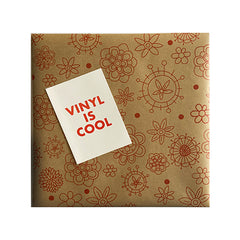

PANDA BEAR
Buoys
From the opening minutes of Buoys, Noah Lennox’s sixth solo album as Panda Bear resembles something both wholly new and intimately familiar to fans and followers of the musician and Animal Collective member’s body of work. Lennox’s bright, sincere voice is still front-and-center, along with his beatific approach to melodic structure and vocal phrasing—but there’s miles of space surrounding it, a guitar and a few textured samples here and there fleshing out Buoys’ dubby sparseness. The off-white loveliness of his 2011 LP Tomboy is recalled, as well as the sampledelia of 2007’s landmark Person Pitch—but Buoys otherwise represents a surprising and intimately pleasurable new direction for an artist who’s embraced not repeating oneself as its own creative ethos.
The latest Panda Bear release since 2018’s vinyl-only release A Day With the Homies and the follow-up to 2015’s kaleidoscopic Panda Bear Meets the Grim Reaper, Buoys began gestating in late 2017, as Lennox joined up with producer and frequent collaborator Rusty Santos (Animal Collective, DJ Rashad, Eric Copeland) in the former’s current home of Lisbon, Portugal. “He came over for some work of his own and spoke about music he’d recently been involved with mainly sad trap and reggaeton productions,” Lennox explains on how Santos became involved with Buoys. “We spoke about contemporary music and the production processes and techniques used in its creation. I hoped to translate the new songs into music that might, if only at the surface, feel familiar to a young person’s ears.”
One approach the pair took was dialling back the guitar-heavy structure that Lennox’s early versions relied on: “When I wrote the songs, it was just guitar and singing and a simple rhythm arrangement. Rusty’s first move was to mute the guitar. That was the biggest change that took place before the finished product.” Another was introducing Auto-Tune as a studio tool, which was the first time Lennox had worked with the program since his 2015 remix of Eric Copeland’s “Cheap Treat,” and a fruitful device for exploring the limits of his own sound. “It was a long journey we went on—I wasn’t expecting to before we got together, but it was fun,” he explains. “I was trying to find a single vocal take to drive the whole album—not too many harmonies—and the Auto-Tune let that happen. It gave it this texture and thickness to my voice that I was otherwise using reverb or doubling to get.” Lennox also cites Atlanta (“A lot of sub-bass and 808 kicks”) as an influence on Buoys’ sound—a logical extension of the rhythmic and sample-based work Lennox has engaged in through the Panda Bear project since Person Pitch.
- Related products
- Recently viewed


